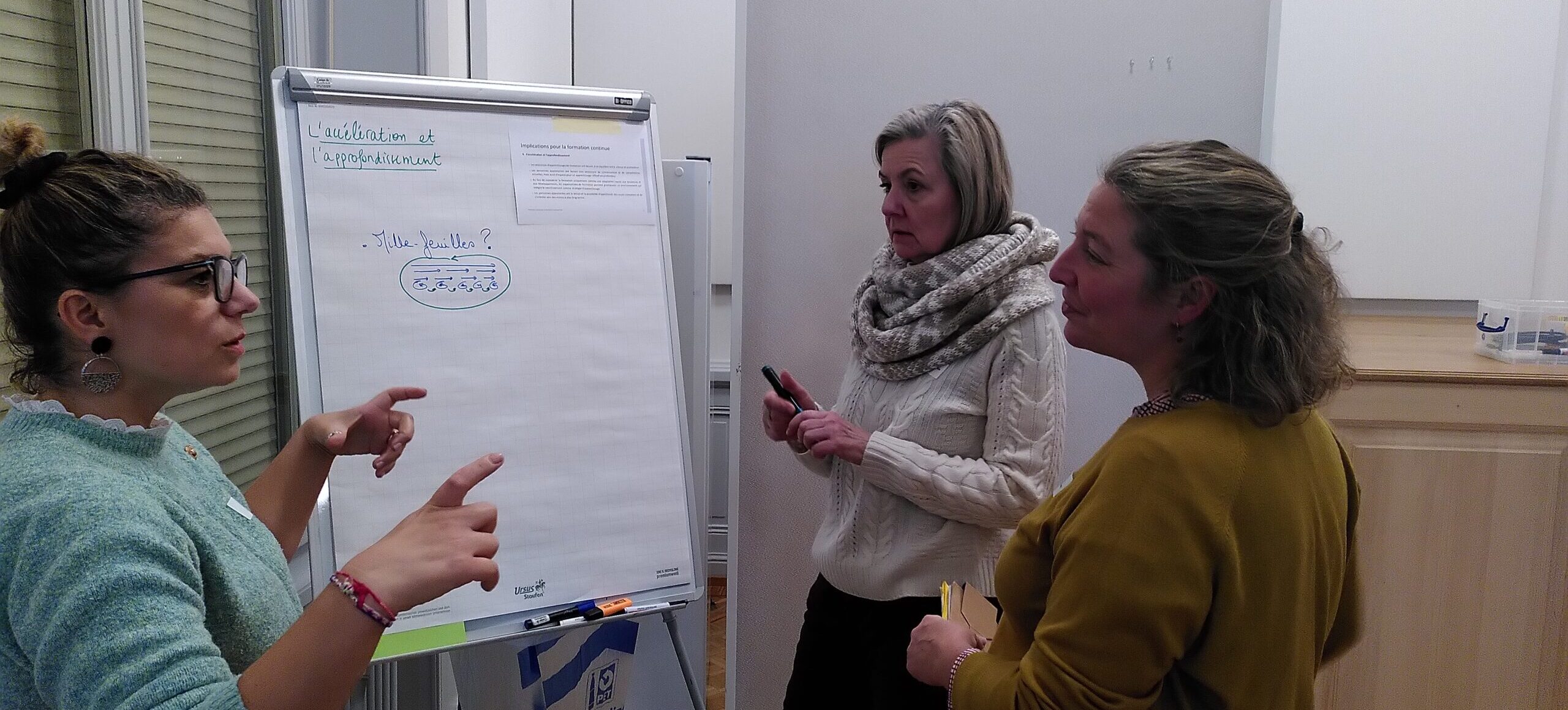At its event on 4 December, the TRANSIT think tank invited the public to reflect and discuss Future Skills. As in the previous year, Le Salon at the Casino de Montbenon proved to be an inspiring venue. Participants reflected together on the future needs of adult learning in the context of a rapidly changing society. A central question was how Future Skills could incorporate social visions and values alongside the promotion of individual skills. The combination of theoretical input, critical reflection and creative approaches provided a unique moment dedicated to projecting into the future.
The event attracted a mixed group of participants mirroring the diversity of actors in adult education. In addition to representatives from adult education institutions, there were also self-employed people, companies and public organisations. What the participants had in common was that they liked to think creatively and were interested in the future of adult education and learning.
Participants began by discussing Future Skills on the basis of their previous experiences and the challenges they face in their own contexts. The four skills of communication, collaboration, critical thinking and creativity were used as a starting point to explore the motivation for taking an interest in the topic. The discussions showed that Future Skills are relevant to many areas of adult learning. Issues such as artificial intelligence, where and how to acquire transversal skills, the importance of the psychological and emotional dimension and critical distance were highlighted.
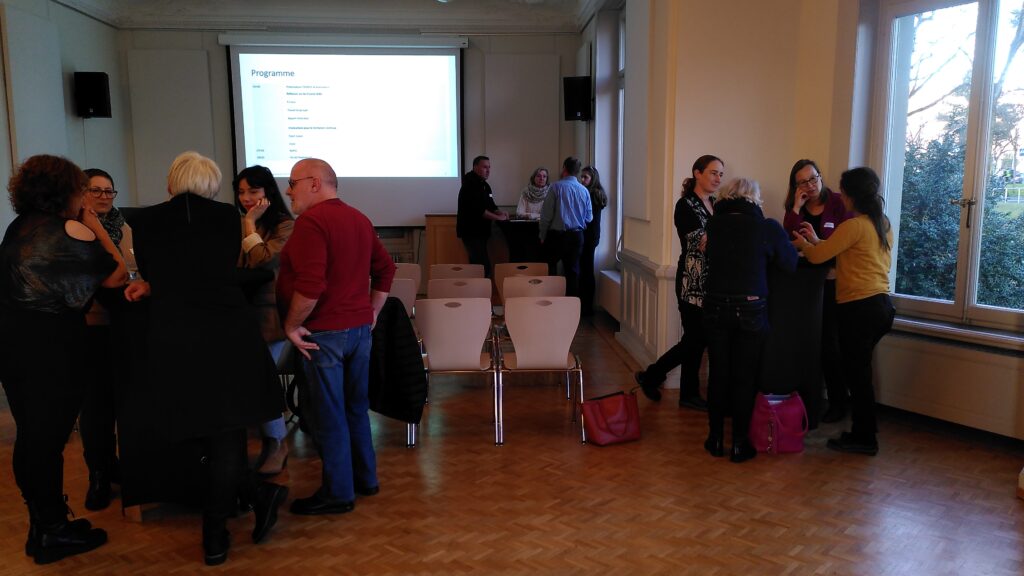
Theoretical input: Framing the discussion
To provide a framework for the ensuing discussions, a presentation was given on the main findings of the next TRANSIT Trend Report, due to be published in 2025. This provided an opportunity to raise some key questions and critical reflections on the role of Future Skills, and to present existing models. The presentations also shed light on implications for adult education and learning.
The presentation emphasised that Future Skills models are neither universal nor static, but are shaped by the specific cultural and social contexts in which they are developed and applied. This contextual perspective requires training organisations not only to respond flexibly to different needs, but also to reflect consciously on the values and discourses underlying different models.
Another key point was the importance of Future Skills as ‚tools for building the future‘. This is because representations of the future influence both current actions and the conditions of future societies. Managing Future Skills therefore means managing representations of the future.
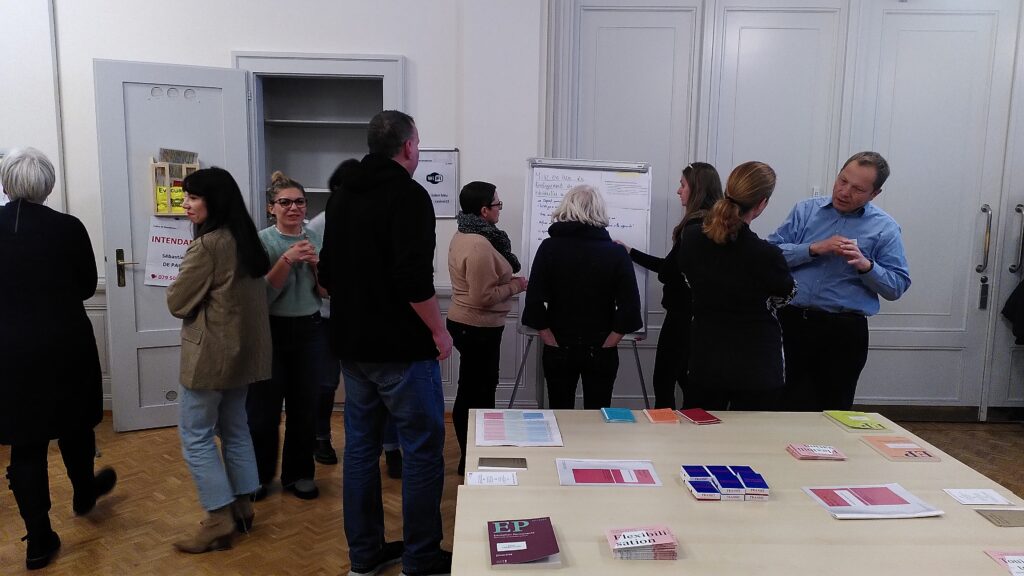
Implications for adult learning in dealing with future skills
The discussions that followed focused on three of the seven implications derived from the Future Skills reflections presented: acceleration and deepening, dominant discourses on education and the future, and linking individual skills promotion to societal visions.
These ranged from philosophical reflections to practical proposals. They were then taken up in an open space format: participants moved freely between the posters presenting the implications, contributing their perspectives, ideas, suggestions, criticisms and so on. The main points written and drawn on the flipcharts were then presented to the plenary.
Acceleration and Deepening
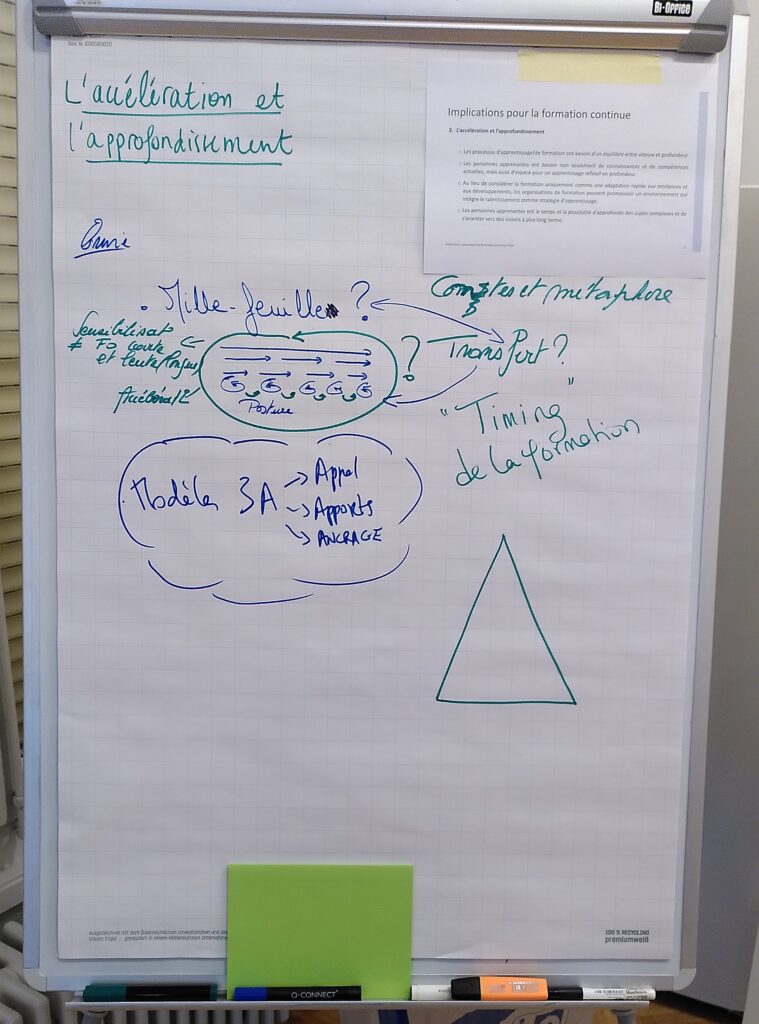
In today’s fast-paced world, the ability to transfer learning and embed it in practice is essential. Discussions focused in particular on the ‚mille-feuilles‘ technique for transfer, i.e. the division of stages with feedback loops to ensure optimum transfer to the field and thus increase the relevance to the company’s reality. The question of the timing of training (timing and duration) was also linked to the stimulation of anchoring.
Dominant discourses on education and the future
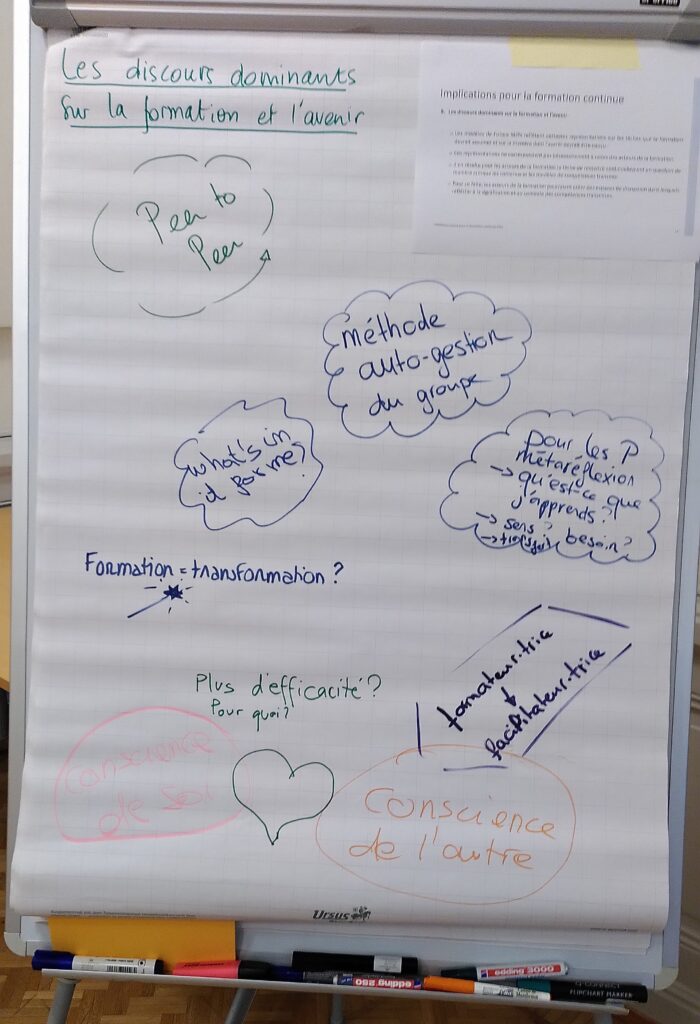
Starting from the possibility of seeing and experiencing training as a transformation, the discussions provided an opportunity to reflect on (new) teaching methods, focusing in particular on the learners‘ point of view (’What’s in it for me?“). There was also discussion of the new role of the trainer as facilitator, and the need to be aware of oneself and others in the relationship.
Linking individual skills development to societal visions
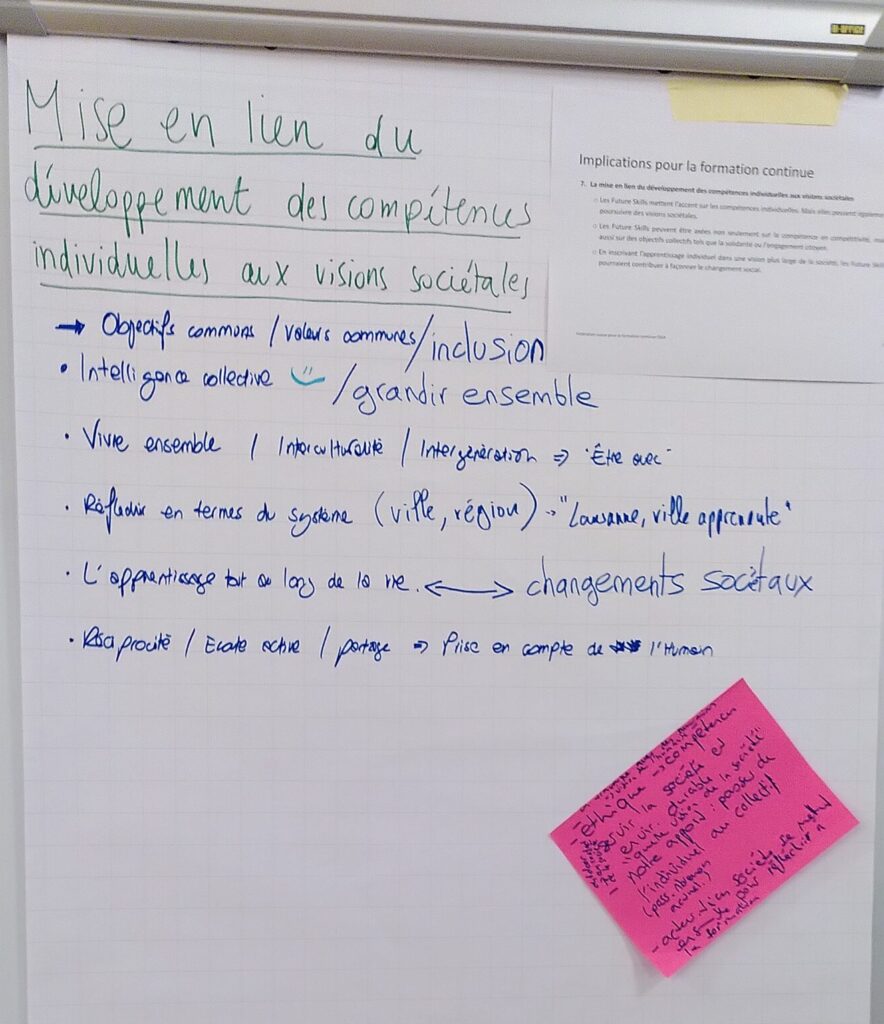
A central point of the discussion was how the promotion of individual skills could be linked to collective objectives. The participants stressed the need to integrate the human vision into the overall picture, particularly with regard to sustainable skills, and to reach out to society in order to learn from within. There was also discussion of the added value of group learning and collective reflection (individuals, cities, regions, etc.).
We look forward to seeing you soon
The programme was rich and varied. Everyone took an active part in the workshop. The event ended with a delicious aperitif featuring local specialities prepared by the Brasserie de Montbenon, during which lively discussions on the future of adult learning continued. Some of the ideas and proposals gathered will be incorporated into TRANSIT’s next trend report, which will be published in early 2025. TRANSIT would like to thank all the participants for their visionary ideas.
